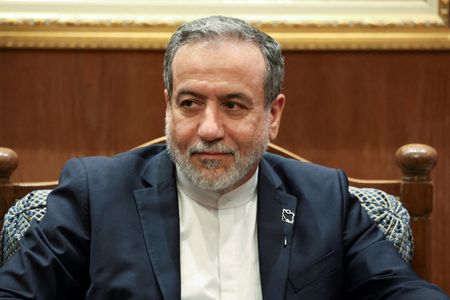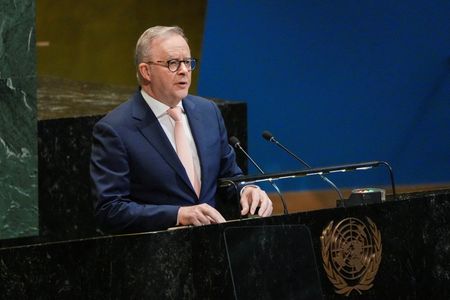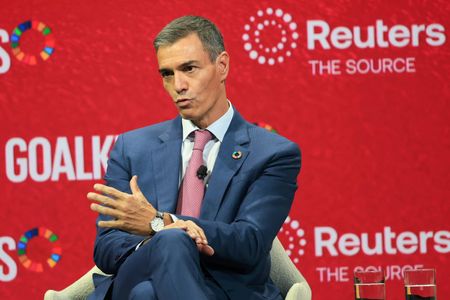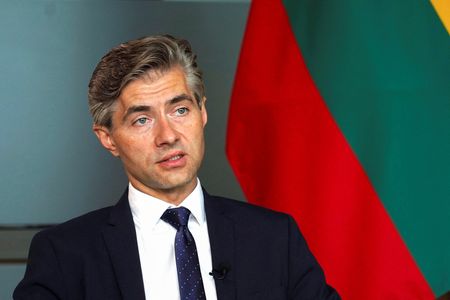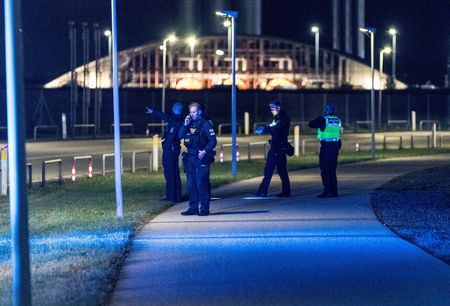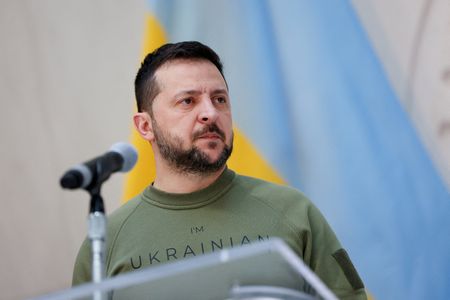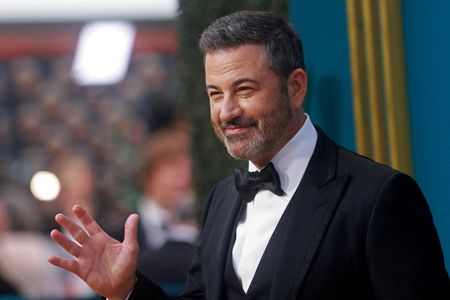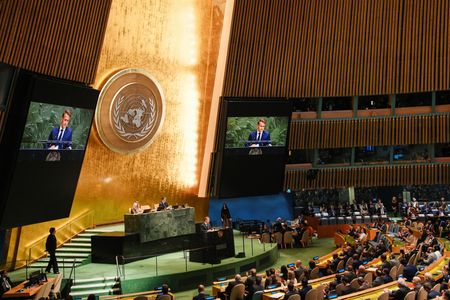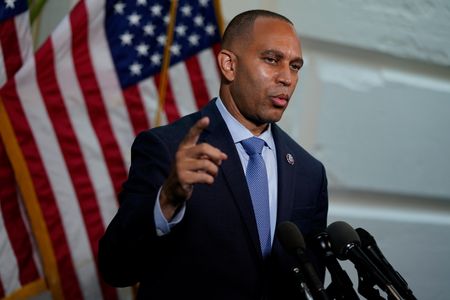By Parisa Hafezi and John Irish
UNITED NATIONS (Reuters) -Iran and European powers are engaged in last-ditch talks to prevent the revival of U.N. sanctions on Tehran, two senior Iranian officials and two Western diplomats told Reuters on Monday, though all warned the chances of success remain slim.
The sources said foreign ministers of Iran, Britain, France, and Germany will meet on Tuesday on the sidelines of the U.N. General Assembly to discuss Iran’s disputed nuclear ambitions amid looming threats of sanctions.
Britain, France, and Germany, known as the E3, launched a 30-day process on August 28 to reimpose U.N. sanctions, accusing Tehran of failing to abide by a 2015 deal with world powers aimed at preventing it from developing a nuclear weapon.
Tehran has long said its nuclear programme is for peaceful purposes.
“Iran has been in contact with E3/EU officials and (the U.N. nuclear chief Rafael) Grossi since this morning at U.N. Different ideas have been raised and discussed,” a senior Iranian official said.
“Iranian top diplomat will meet with the E3 foreign ministers and EU foreign policy chief (Kaja) Kallas tomorrow and will continue the discussions.”
Another senior Iranian official said: “Everyone seems to be trying” to resolve the nuclear dispute. Two European diplomats confirmed the meeting on Tuesday.
On Monday, Iranian Foreign Minister Abbas Araqchi called on the European powers to choose “cooperation or confrontation”.
“They have tested Iran repeatedly and know we do not respond to the language of pressure and threat … I hope we can find a diplomatic solution in the coming days, otherwise Tehran will take appropriate measures,” Araqchi told state TV.
The European powers have offered to delay reinstating sanctions for up to six months – to allow space for talks on a long-term deal on Tehran’s nuclear programme – if Iran restores access for U.N. nuclear inspectors, addresses concerns about its stock of enriched uranium, and engages in talks with the United States.
“CHANCES ARE SLIM”
But amid the looming threat of sanctions, two other European diplomats said Iran’s clerical rulers have so far failed to meet the conditions set by the E3.
“The ball is in Iran’s camp. It is up to it to quickly take the concrete steps in the coming days to avert snapback. If not then sanctions will be reimposed,” said one of the diplomats.
Another European diplomat said the chances of reaching an agreement are slim.
“The minimum would be for Iranians to present the special report and allow some token visit of inspectors to some (nuclear) sites but even then that probably won’t fly and also chances are U.S. would veto,” the diplomat said.
If Tehran and the E3 fail to reach a deal on an extension by the end of September 27, then all U.N. sanctions will be reimposed on Iran where the economy already struggles with crippling sanctions reimposed since 2018 after U.S. President Donald Trump ditched the pact during his first term.
Iranian President Masoud Pezeshkian said on Saturday that Iran would overcome any reimposition of U.N. sanctions, but one insider said mounting discontent among many Iranians at the state of the economy was rattling the Islamic Republic, with little sign that its leaders have the answers.
Soon after the U.S. and Israeli attacks on Iranian nuclear sites in June, Iran’s parliament passed a law suspending cooperation with the International Atomic Energy Agency and stipulating that any inspections must be approved by Iran’s Supreme National Security Council.
On September 9, the IAEA and Tehran reached a deal to resume inspections at nuclear sites.
“I am in New York to use these remaining days for diplomatic consultations that might lead to a solution … if it is not found, we will continue our path,” Araqchi said.
(Additional reporting by Michelle Nichols Writing by Parisa Hafezi; Editing by Howard Goller and Michael Perry)

